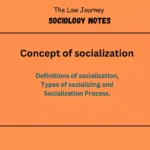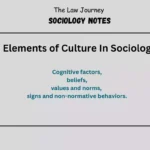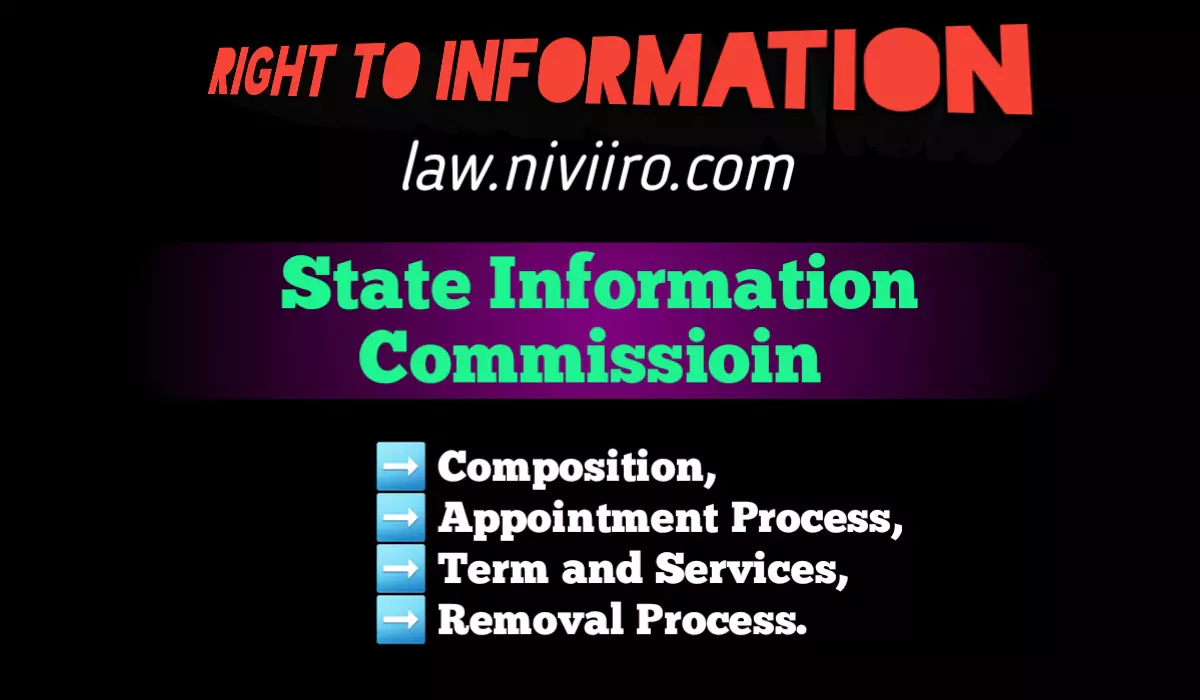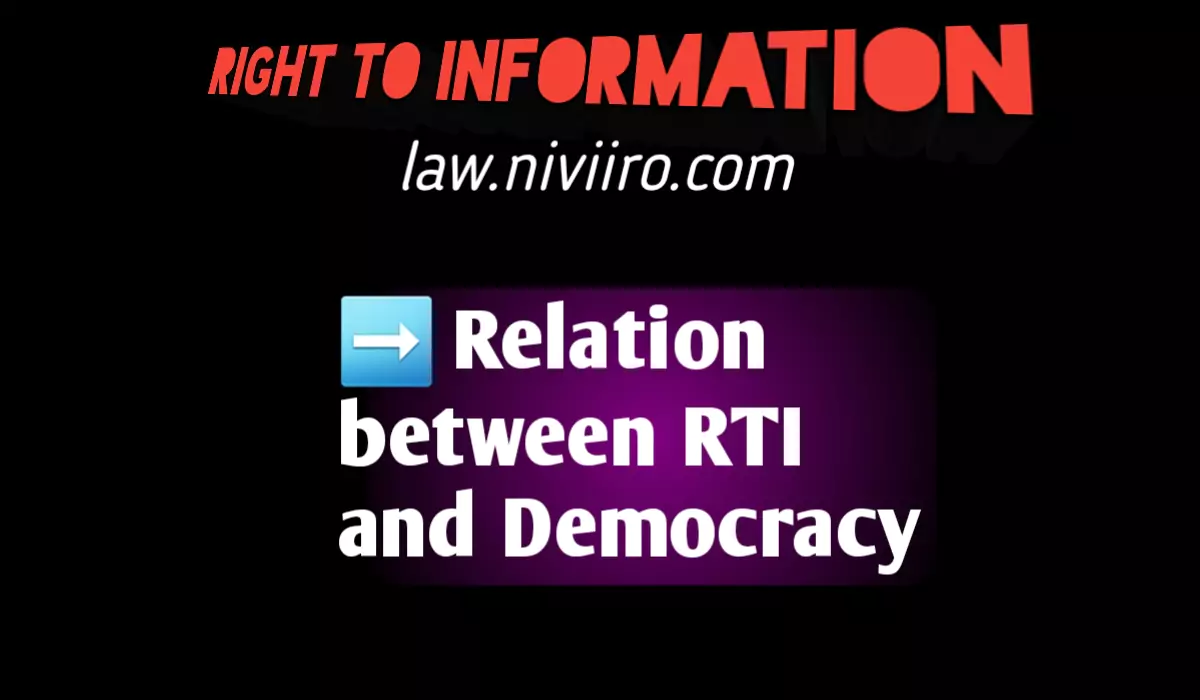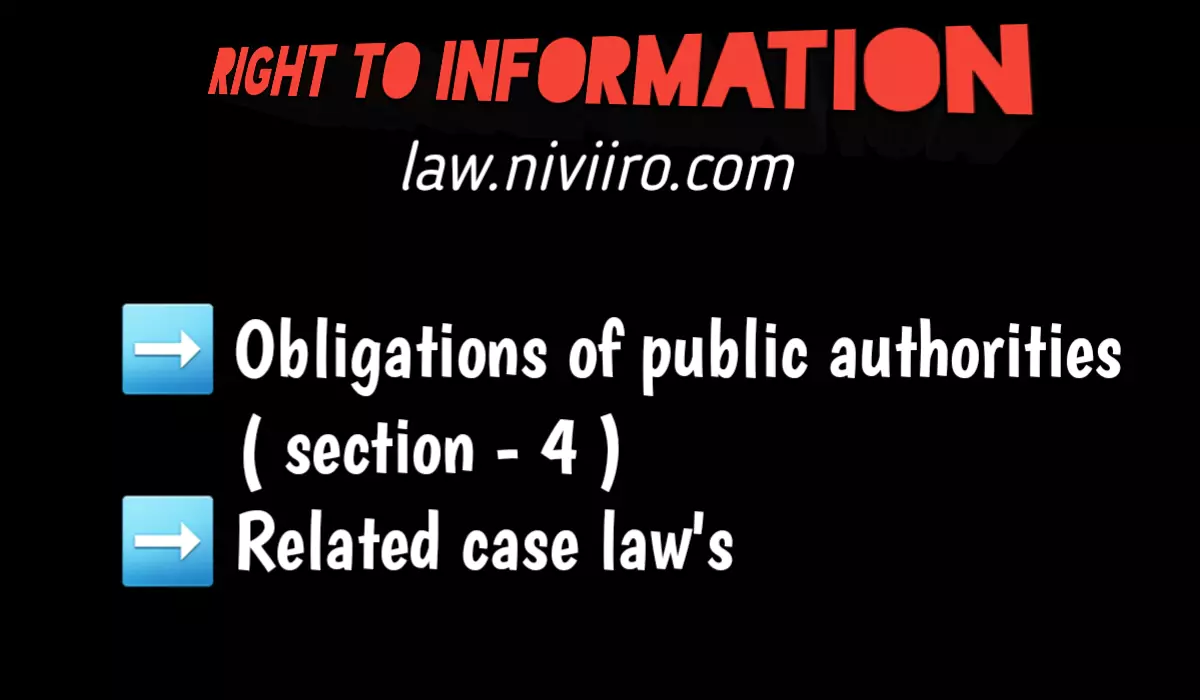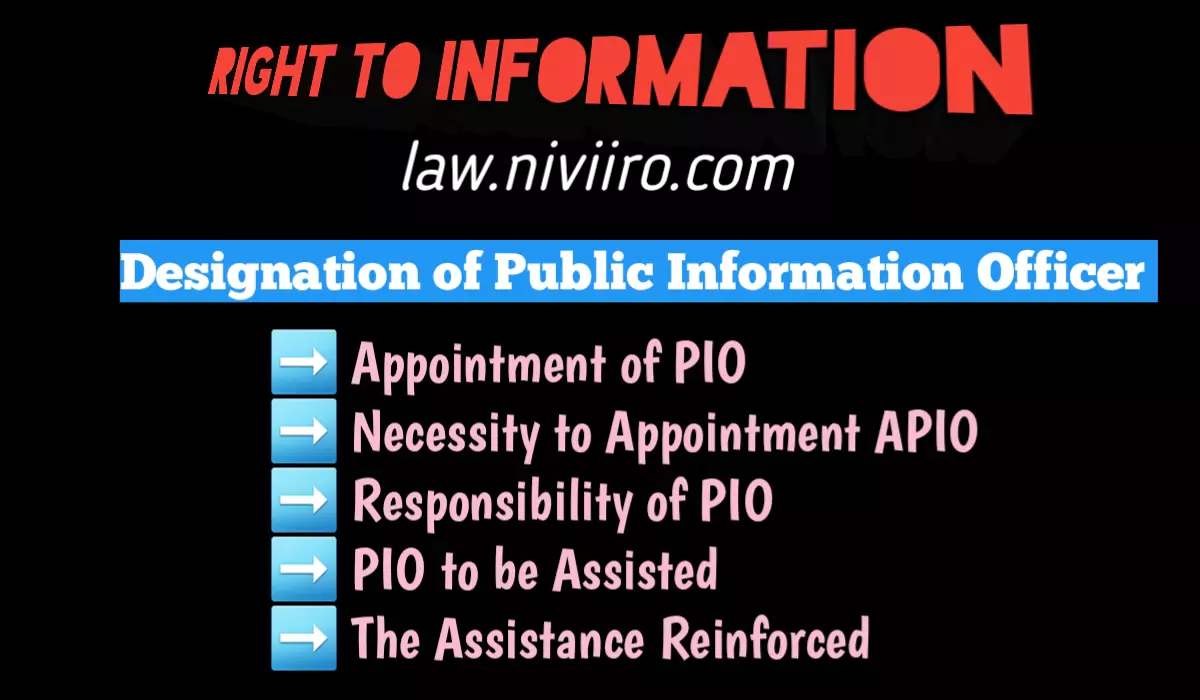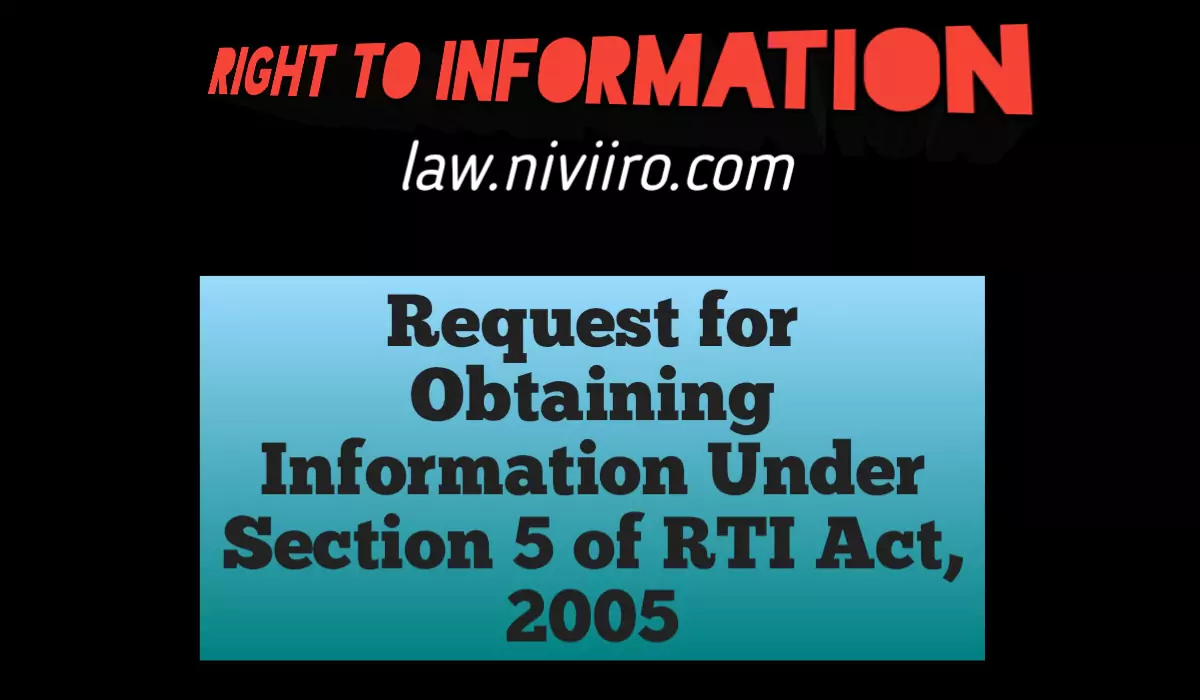A State Information Commission (SIC) is an independent statutory body established under India’s Right to Information Act (RTI) on October 12, 2005. The SIC’s principal goal is to enhance transparency and accountability in the operation of state government departments and public authorities by enabling citizens’ access to information stored by these institutions.
Provision made Under Section 15,16,17 of Right to infoemation act, 2005 related to State Information Commission with its Constitution, Term and service, Removal.
Composition of State Information Commission
According to Section 15(1) of the Right to Information Act, 2005, the state government has been empowered to constitute the State Information Commission as a body. The state government may constitute a State Information Commissioin the name of the state concerned by giving notification in this gazette.
According to Section 15 (2) of the Act, the State Information Commission includes –
- State Chief Information Commissioner;
- Not more than ten State Information Commissioners.
According to Section 15 (3) of the Act, the State Chief Information Commissioner and State Information Commissioners will be appointed only after the approval of the recommendation of the committee made by the Governor. The committee made by the governor will have the following members –
(i) the Chief Minister, who shall be the Chairperson of the committee;
(ii) the Leader of Opposition in the Legislative Assembly; and
(iii) a Cabinet Minister to be nominated by the Chief Minister.
In the assembly where the opposition party leader has not been announced, the leader of the largest party against the government will be considered the leader of the opposition party for serial number two above.
According to Section 15(4) of the Act, the State Chief Information Commissioner will undertake the general inspection, direction and management of the functions of the State Information Commission. The State Information Commissioner assists the State Chief Information Commissioner in the above work.
Eligibility of State Chief Information Commissioner and State Information Commissioner
According to Section 15(5), the State Chief Information Commissioner and the State Information Commissioners shall be persons of eminence in the following areas-
- Law;
- Science and technology;
- Social service;
- Management;
- Jourgalism;
- Mass media and administration.
State Chief Information Commissioner and State Information Commissioners should not have the following disqualifications According to Section 15(6)
- He shall not be a Member of Parliament or
- He shall not be a Member of the Legislature of any State or Union territory, or
- He shall not hold any other office of profit or,
- He shall not be connected with any political party or,
- He shall not carry any business or
- He shall not pursue any profession.
Head office of State information Commission Section 15 (7) of the Act relates to the headquarters of the State Information Commission. According to this Section, headquarters will be where the state government notifies in the official gazette. The State Information Commission has been empowered to establish its office anywhere in India with the opinion of the State Government.
Term and service conditions of State Chief Information Commissioner and State Information Commissioners
According to Section 16(1) & 16(2) of the Act, the term of the State Chief Information Commissioner will be for a period of five years from the day he takes office or till the age limit of 65 years, whichever is earlier. He will not be eligible for reappointment but after vacating his post, he will be. eligible to be appointed as Chief Information Commissioner. If he is appointed as Chief Information Commissioner, he shall not hold office for more than 5 years including the tenure of both the Information Commissioner and the Chief Information Commissioner.
Oath: As per Section 16 (3) the Chief Information Commissioner or other Information Commissioner shall-take an oath before the Governor or any person appointed by him for this purpose before assuming his office.
Resignation: As per Section 16(4) the Chief Information Commissioner or other Information Commissioner can resign from his post at any time. He will sign the resignation letter in his handwriting while addressing the Governor.
Salary and Allowances and service conditions of State Chief Information Commissioner and State Commissioners information
As per Section 16(5) of the Act –
The salary, allowance and service conditions of the State Chief Information Commissioner will be the same as that of the Election Commissioner. The salary, allowance and service conditions of the State Information Commissioner will be the same as that of the Chief Secretary of the State Government.
But after the appointment of ‘the above State Chief Information Commissioner and Information Commissioner, salary, allowances and conditions of service will not be able to make a non-profitable change.
In Section 16 (6) of the Act, the State Chief Information Commissioner and State Information Commissioners are also made available by the state government to the necessary officers and employees for efficient discharge of their functions. In the matter of Virendra Kumar v. P.S. Rana (A.I.R. 2007 Himachal Pradesh 63), it was held that the State Information Commission is a multi-member body. It is the discretion of the state government that it can appoint as many state information officers as it deems necessary, but these numbers will be minimum one and maximum up to ten. The State Government has no discretioi. not to appoint a State Election Officer other than the Chief Election Commissioner.
In the matter of Sayyad Husain Abbas Rizwi v. State Information Commission (A.I.R. 2010 Patna 57), it was held that the State Information Commission has the power to make arrangements in the case of the Commission. Therefore, it is up to the discretion of the Chief Information Commissioner as to how the affairs of the Commission will be handled, for the prevention of any ambiguity about the status of other Information Commissioners who are also members of the Information Commission: it is provided that they are the Chief Information will assisi ihe commissioner.
In the matter of Mansuri Dehradun Development Authority v. Chief Information Commissioner (A.I.R. 2010 Uttarakhand 114 Page 116-117) in this case, the word ‘and’ is used in conjunction with sections (a) and (b) of Section 15 of the Right to Information Act. Therefore, the State Information Commission Minimum should be a multi-member body with a Chief Commissioner and a maximum of 10 Information Commissioners. Therefore, the state Chief Information Commissioner cannot pass the order passed in the second appeal by sitting alone in the second appeal and it is void of authority.
In the matter of D.D. Beenu v. Governor (A.I.R. 2011 Kerala 5 Page No. 12), it was held that the Governor has the immunity and protection under Article 15 (3) of the Constitution of India in exercising his powers and therefore, objecting to the appointment made by him under Section 15 (3) of the Right to Information Act, he cannot be made a party as a respondent in the writ petition.
Removal of State Chief Information Commissioner or State Information Commissioner According to Section17 of the Act –
17(1) Subject to the provisions of sub-section (3), the State Chief Information Commissioner or a State Information Commissioner shall be removed from his office only by order of the Governor on the ground of proved misbehaviour or incapacity after the Supreme Court, on a reference made to it by the Governor, has on inquiry, reported that the State Chief Information Commissioner or a State Information Commissioner, as the case may be, ought on such ground be removed.
17(2) The Governor may suspend from office, and if deem necessary prohibit also from attending the office during inquiry, the State Chief Information Commissioner or a State Information Commissioner in respect of whom a reference has been made to the Supreme Court under sub-section (1) until the Governor has passed orders on receipt of the report of the Supreme Court on such reference.
Right of Governor to remove State Chief Information
Commissioner and State Information Commissioners from posts without investigation report of High Court Under Section 17 (3) of the Act, the Governor can remove the State Chief Information Commissioner and the State Information Commissioners on the following grounds without investigation report of the Supreme Court. If State Chief Information Commissioner and State Information Commissioner ;
(a) is adjudged an insolvent; or
(b) has been convicted of an offence which, in the opinion of the Governor, involves moral turpitude; or
(c) engages during his term of office in any paid employment outside the duties of his office; or
(d) is, in the opinion of the Governor, unfit to continue in office by reason of infirmity of mind or body; or
(e) has acquired such fmancial or other interest as is likely to affect prejudicially his functions as the State Chie Information Commissioner or a State Informatio Commissioner.
When will the Chief Information Commissioner and State Information Commissioner be deemed guilty of ‘misconduct’ ?
According to Section 17 (4) of the Act, the Chiet Information Commissioner and the State Information Commissioner will be guilty of misconduct on the following grounds, if he –
1. is in any way, concerned or interested in any contract or agreement made by or on behalf of the Government of India or
2. participates in any way in the profit thereof or in any benefit or emolument arising therefrom otherwise than as a member and in common with the other members of an incorporated company.
Overall, the State Information Commission plays a critical role in ensuring that citizens have access to information held by public authorities and that public officials are held accountable for their actions.
Related Post | State Information Commission
- Central Information Commission | Composition | Term | Removal
- Powers and functions of the Central Information Commission and State Information Commission
- Third Party Information Under RTI Act, 2005
- Meaning of RTI | Background | Objects
- Severability Under the RTI Act, 2005 | Section 10
- Relation between RTI and Corruption
- Grounds For Rejection to Access Information In Certain Cases under RTI Act, 2005
- Exemption From Disclosure of Information under RTI Act, 2005
References
- Commentary on The Right to Information Act by J. N. Barowalia, 2010
- Right to Information by K. B. Rai, 2020
- Right To Information Law & Practice by R. K. Verma, 2010
- The RTI Story: Power to the People by Aruna Roy, 2018













